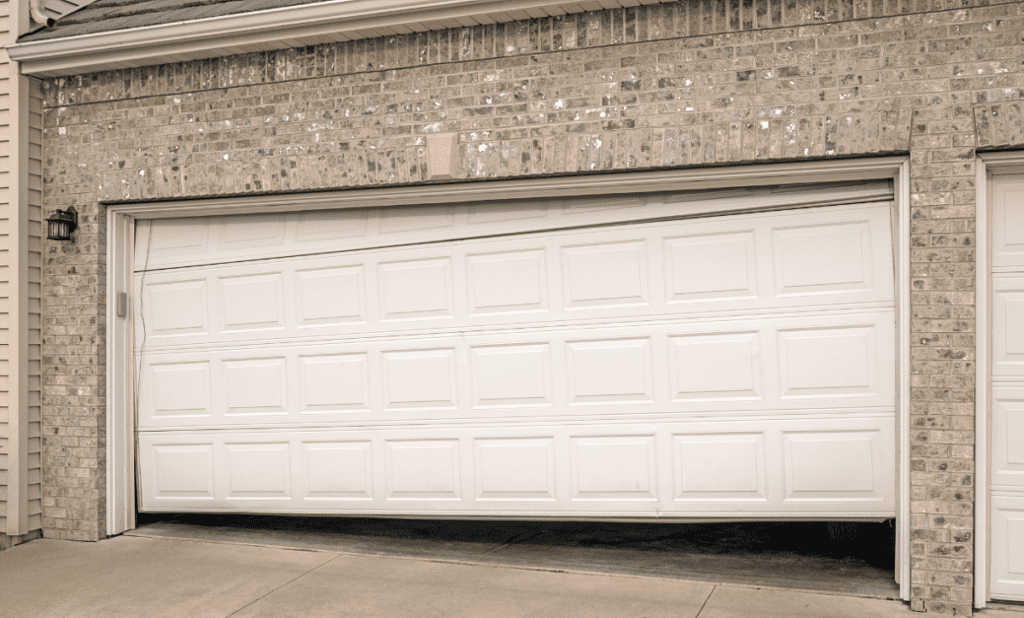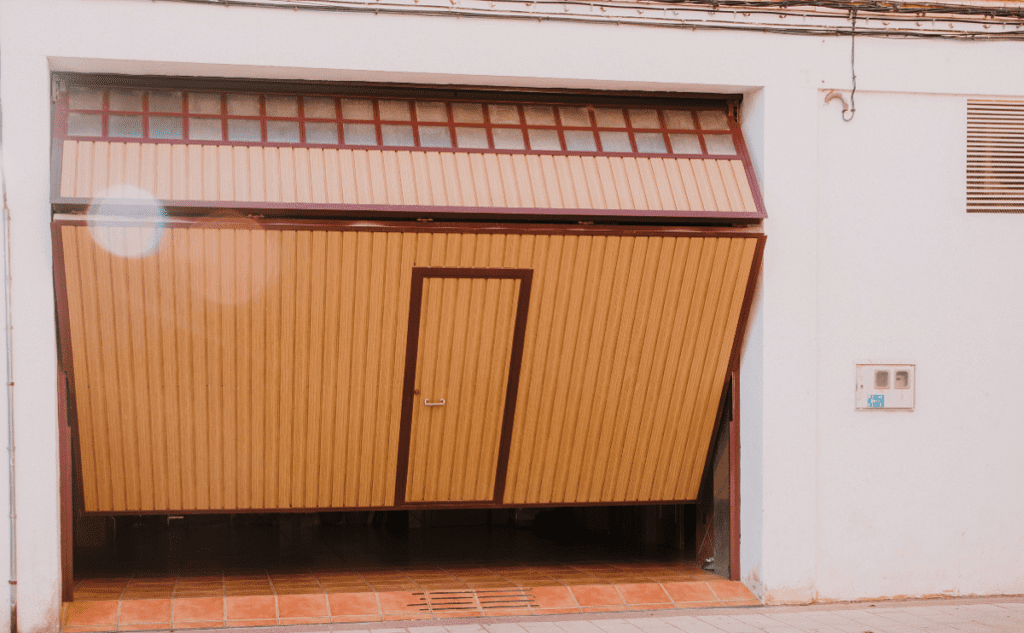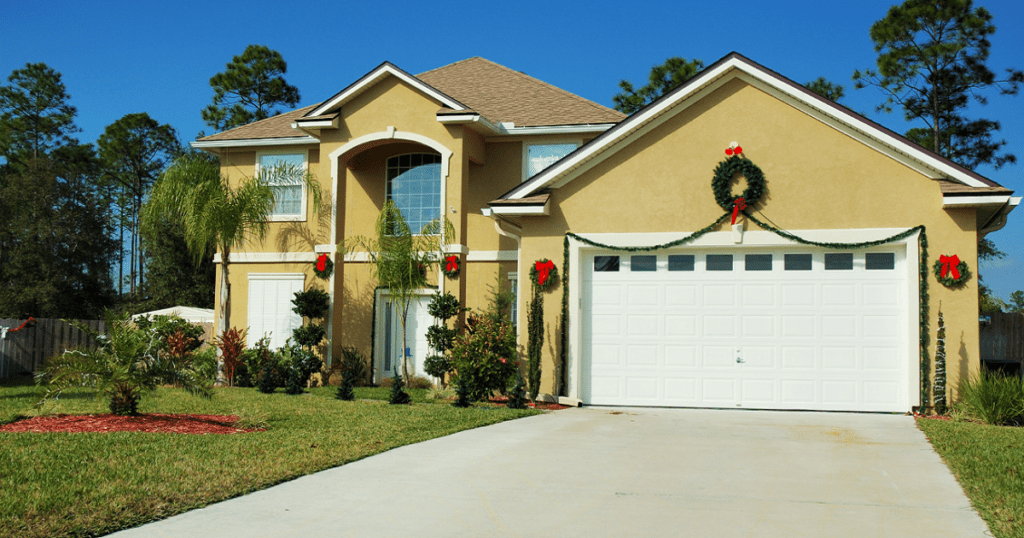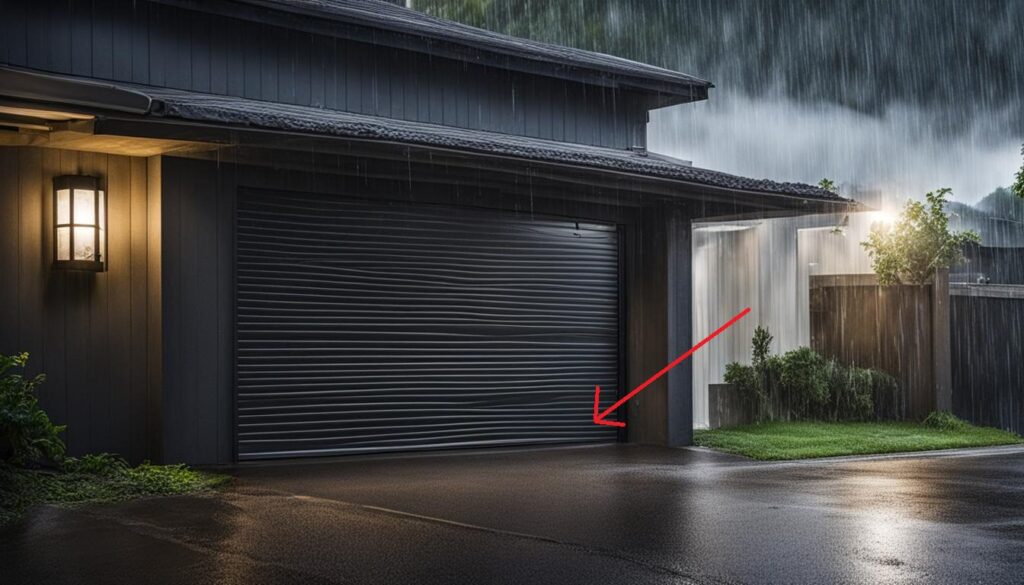
The Importance of Garage Doors
Garage doors are an essential part of any home. They not only serve as a convenient entry and exit point for your vehicles but also provide additional security and protection to your property. A well-functioning garage door ensures the safety and security of your belongings, family members, and even pets.
It also enhances the curb appeal of your house, increasing its overall value. Simply put, garage doors are a crucial investment that requires proper attention and care. Now, what is the best thing to lube garage doors? Read on to learn more.
The Need for Proper Maintenance
Like any other equipment or machinery in our homes, garage doors require regular maintenance to function correctly. Neglecting garage door maintenance can lead to significant problems over time. Regular maintenance ensures the smooth operation of the door mechanism while preventing costly repairs or replacements down the line.
A basic garage door maintenance routine includes cleaning off dirt and debris from tracks regularly, tightening loose bolts and screws, and lubricating all moving parts, such as springs, hinges, and rollers, with a suitable lubricant every six months or so. If you notice any unusual noises or movements in the operation of your garage door system, it is best to get it checked by a professional immediately.
The Role of Lubrication
Enhancing the lifespan and performance of your garage door comes down to one simple thing – regular lubrication! Garage door lubrication is an easy DIY task that can significantly improve how smoothly your garage door operates while eliminating annoying squeaks or grinding sounds that may occur during opening or closing. Lubricating all moving parts with a suitable product helps prevent wear & tear caused by friction between metal components while ensuring smoother operation without any noise issues.
It is important to note that using the wrong type of lube can cause more damage than good by attracting dust & dirt particles into the sensitive parts resulting in eventual corrosion & damage to mechanical elements. Consider this article as a one-stop shop for all your garage door lubrication needs.
From pro tips for garage door lubrication to safety measures while lubricating garage doors, we got you covered. Our comprehensive guide includes the top lubricants for garage doors, common mistakes in garage door lubrication, and everything you need to know about maintaining a smooth garage door operation.
Understanding Garage Door Lubrication
Types of Lubricants
Garage doors are made up of various metal parts, and without proper lubrication, they can easily rust or wear out. Therefore, it is important to choose the right lubricant for your garage door to keep it running smoothly and quietly. There are different types of garage door lubricants available in the market, including silicone-based lubricants, lithium-based grease, and Teflon-based sprays.
Silicone-Based Lubricants: The All-Rounder Solution
Silicone-based lubricants are versatile in handling different types of materials, such as plastic, metal, or rubber. They can withstand extreme temperatures ranging from -40°F to 400°F and are long-lasting without attracting dust or dirt. They also provide superior protection against rust and corrosion while reducing friction between moving parts in your garage door.
Types of garage door lubricants like silicone-based ones provide a water-resistant barrier that prevents moisture from building up on the surface of the metal parts, which might potentially lead to corrosion. They’re perfect for use in humid climates where excess moisture can cause problems for your garage doors.
Lithium-Based Grease: The Heavy-Duty Solution
Lithium-based grease is a heavy-duty solution designed for heavy-duty garage doors that require more protection against extreme pressure without breaking down. It’s perfect for high-performance applications where there’s a lot of stress on moving parts due to frequent usage. While silicone sprays work well with plastic hinges and rollers, lithium grease is better suited for metallic components such as gears or chains since it offers exceptional adhesion properties that do not easily wash off even when exposed to harsh weather conditions like rain or snow.
Teflon-Based Sprays: The High-Performance Solution
Teflon-coated lubricants provide long-lasting protection against rust and corrosion while reducing friction, leading to quieter operation. Teflon sprays are best suited for garage doors that have metallic moving parts, tracks, or hinges that operate in extreme temperatures.
Teflon-based sprays are ideal for those seeking an all-in-one solution where they can lubricate their entire garage door with one product. They ensure a smooth operation every time you open or close your garage door and work best when you’re looking to reduce noise levels.
Factors to Consider When Choosing a Lubricant
When choosing the right lubricant for your garage door, there are several factors to consider.
- Firstly, consider the climate and weather conditions in your area as well as the type of material used on your garage door. Different types of materials require different types of lubrication.
- Secondly, take into account the frequency of use – if you use your garage door frequently each day, then you may need a more heavy-duty lubricant that can withstand constant wear and tear. Always ensure you read and follow safety measures when applying any form of lubrication on your garage doors.
- Choosing the right type of lubricant is key to maintaining smooth garage door operation over time and extending its lifespan. You should always refer to a Garage Door Lubrication Guide before applying any lube on your doors since it might result in damage if done incorrectly. Silicone-based lubricants work best for most homeowners due to their versatility whilst lithium-based grease works better for metallic components like gears or chains – choose wisely!
Best Lubricants for Garage Doors
Silicone-Based Lubricants
Silicone-based lubricants are the Swiss army knife of garage door lubrication. They can handle virtually any type of material, from metal to plastic, and can withstand all kinds of weather. These lubricants have a high resistance to extreme temperatures, making them perfect for harsh winter conditions or scorching heat waves.
They are also long-lasting and do not attract dust or dirt, which means you won’t have to apply them as frequently as other types of lubricants. One of the reasons silicone-based lubricants are so popular is their versatility.
They work well on all the moving parts of your garage door, including the hinges, rollers, and tracks. When applying these types of sprays to your garage door parts, make sure you follow the manufacturer’s instructions carefully and don’t overdo it.
Pro tips for garage door lubrication: For best results with silicone-based lubricants on your garage doors:
- Use a clean cloth or rag to wipe away any debris before application.
- Apply in small amounts at regular intervals rather than a large amount at once.
- Avoid spraying onto the springs, as they need a different type of lubricant.
Lithium-Based Grease
If you have heavy-duty garage doors that require more protection than silicone-based sprays can provide, then lithium-based grease is your go-to solution. Lithium greases typically come in thicker forms that give them greater staying power and allow them to handle extreme pressure without breaking down.
While they may not be as versatile as silicone sprays when it comes to compatibility with different materials like plastic or rubberized parts, they still work well on metal components such as hinges, rollers, and tracks. Lithium grease can also help to reduce wear and tear on your garage door parts, making them last longer.
Do’s and don’ts of garage door lubrication: When using lithium-based grease on your garage doors:
- Do ensure that you only apply it to the metal components.
- Don’t use it on plastic or rubberized parts, as it can cause damage.
- Do use a clean cloth or rag to wipe away any debris before application.
Teflon-Based Sprays
If you want a high-performance lubricant for your garage doors that provides long-lasting protection against rust and corrosion while reducing friction, then Teflon-based sprays are the way to go. These sprays not only protect your garage door parts but also help to reduce noise levels during operation.
The best thing about Teflon-based sprays is their ability to repel water and prevent rust from forming on metal components. They also provide an extra layer of protection against dust, dirt, and grime buildup that can interfere with the smooth operation of your garage door.
Silence your noisy garage door with the right lubricant: To get the best out of Teflon-based sprays for your noisy garage doors:
- Apply regularly but sparingly on all moving parts
- Avoid spraying onto rubberized components such as weatherstripping
- Wipe away any excess spray with a clean cloth or rag
Different types of lubricants work best for different situations when it comes to maintaining smooth operation in our garages. Silicone-based lubricants are versatile enough for most materials, while lithium grease is ideal for heavy-duty metal parts.
Teflon spray provides high-performance protection against rust/corrosion along with quiet operation due to its reduced-friction characteristics. What works well for you will depend largely upon what type(s) of material your garage door is made out of, as well as the level of protection and frequency of lubrication required.
Application Techniques for Garage Door Lubrication
Preparation Before Applying Lube: Cleaning and Removing Debris
Garage door care is an essential aspect of maintaining a smooth garage door operation. Regular lubrication is one of the critical elements of garage door maintenance.
However, before applying the lubricants to your garage doors, you need to prepare adequately by cleaning the garage door parts thoroughly. This helps remove dust, dirt, and other debris that may affect the performance of your garage doors.
Cleaning your garage doors is an easy process that requires a few tools, such as water, a bucket, soap, and a soft-bristled brush or cloth.
- Begin by mixing water with soap in the bucket to create a soapy solution.
- Dip the brush into the solution and use it to scrub all parts of your garage door thoroughly.
- Once done, rinse off all soap residue with clean water and wipe dry with a clean cloth.
Besides cleaning, it’s crucial to remove any debris or rust from the tracks, hinges, and roller springs before applying lube. This helps ensure that you achieve maximum benefits from lubricating your garage doors while reducing wear and tear over time.
Application Techniques: Spray Application Technique
After preparing adequately for lubrication application on your garage doors using silicone-based lubricants for the garage doors or any other type of lubricant you prefer from types of garage door lubricants available in stores today, it’s time to get started with applying lube properly. The spray application technique is one effective way of ensuring the even distribution of lube on all parts of your garage door efficiently.
To begin this process, adjust the nozzle on your lube spray can according to manufacturer directions ensuring even distribution when applied across all components, evenly distributing its formulae evenly throughout different sections while minimizing waste as well. Once you have adjusted the nozzle accordingly, stand at least two feet away from the garage door and start spraying.
Apply a sufficient amount of lube to all parts of your garage door, including hinges, rollers, tracks, and springs. Be sure to move the can around periodically to ensure the even distribution of lube on all parts.
Frequently Asked Questions
What is the best lubricant for a garage door?
The best lubricant for garage doors is typically silicone or lithium-based spray lubricant. These lubricants are excellent for metal-to-metal contact and are resistant to heat, cold, and moisture.
Is WD-40 good for garage doors?
While WD-40 can be used for garage doors, it is not typically the best choice as it is more of a cleaner than a lubricant. Instead, a silicone or lithium-based lubricant is often recommended because they stay in place longer and provide superior lubrication.
What can I use to lubricate my garage door wheels?
To lubricate your garage door wheels or rollers, use a high-quality silicone-based lubricant. Ensure the lubricant reaches the bearings inside the rollers for smooth operation.
What is the best lubricant for garage door springs?
For garage door springs, a silicone-based lubricant is often recommended as it adheres well to the metal, provides good moisture resistance, and does not attract dust or grime. It’s also important to make sure you apply the lubricant sparingly and evenly.
Should garage doors be lubricated?
Garage doors should be lubricated regularly to ensure smooth operation, prevent wear and tear, and reduce noise. All moving parts, including springs, hinges, rollers, and tracks, benefit from regular lubrication.
What lubricant to use on doors?
For regular doors, a silicone-based spray lubricant or a graphite powder lubricant is typically a good choice. These are especially good for locks and hinges, as they don’t attract dirt and debris, and they provide long-lasting lubrication.
Conclusion
Proper lubrication is critical for maintaining the optimal operation of your garage doors. Choosing the best thing to lube garage doors is essential as it could impact not only their performance but also their lifespan.
The application process is easy as long as you adhere to safety measures while lubricating your garage doors. The right application techniques can significantly impact enhancing garage door lifespan with lubrication ensuring smooth and quiet operation for years to come.
Always clean and remove debris from your garage doors before applying any type of lubricant from top lubricants for garage doors in stores or online today to ensure maximum efficiency in its application. Applying using spray techniques helps distribute evenly across different components, ensuring even distribution and minimizing waste while reducing wear and tear over time on both the motorized unit as well as other parts like hinges, rollers tracks, or springs which are responsible for holding up the weight limit or opening/closing them at will.






